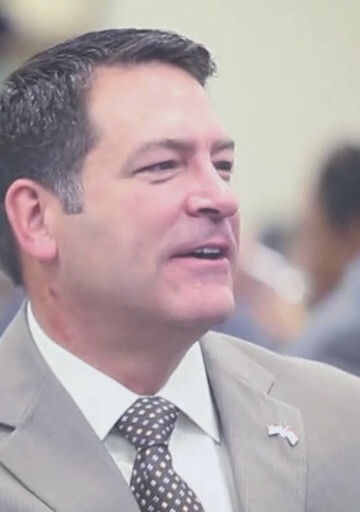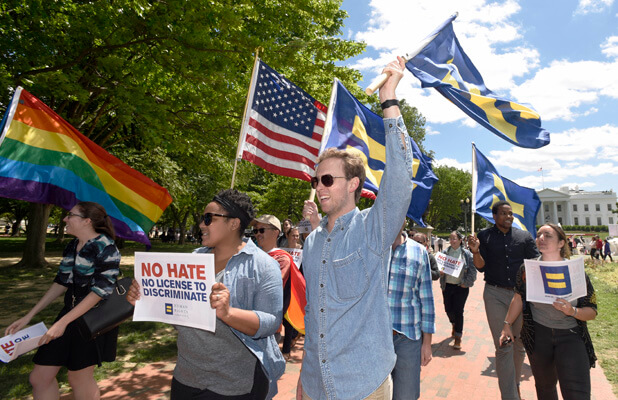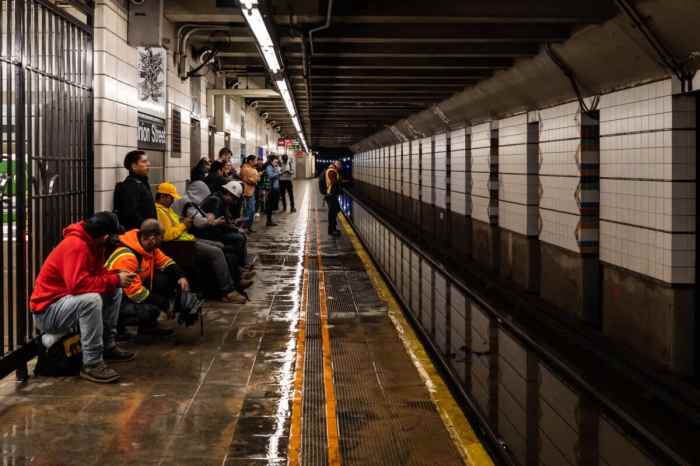Rachel and Laurel Bowman-Cryer and their children. | COURTESY OF LAMBDA LEGAL
In a case that is — for all practical purposes — a virtual clone of the Colorado case, Masterpiece Cakeshop, argued at the US Supreme Court last month, a unanimous three-judge panel of the Court of Appeals of Oregon affirmed a ruling by the Oregon Bureau of Labor and Industries (BOLI) that Melissa and Aaron Klein, doing business as Sweetcakes by Melissa, violated the state’s public accommodations law by refusing to provide a wedding cake for Rachel and Laurel Bowman-Cryer.
The appellate ruling upheld an award of $135,000 in damages, rejecting the Kleins’ argument that this application of the state law to them violates their First Amendment rights. The court did, however, overrule BOLI’s determination that the Kleins’ public remarks in connection with the matter violated a separate section of the law forbidding businesses from announcing in advance that they will discriminate. Judge Chris Garrett wrote for the panel.
When Rachel and Laurel decided to marry in 2012, Rachel and her mother, Cheryl, went to a Portland bridal show and visited the Sweetcakes by Melissa booth at the show. Sweetcakes had created the wedding cake for Cheryl’s wedding two years earlier, and Rachel and Cheryl told Melissa that they would like to order a cake from her. When Rachel and Cheryl went to the bakery for a cake-testing appointment in January 2013, Aaron Klein asked for the names of the bride and groom, and was told there were two brides.
Appeals court finds wedding baker discriminated in clone of matter before SCOTUS
“At that point,” wrote Judge Garrett, “Aaron stated that he was sorry, but that Sweetcakes did not make wedding cakes for same-sex ceremonies because of his and Melissa’s religious convictions. Rachel began crying, and Cheryl took her by the arm and walked her out of the shop. On the way to their car, Rachel became ‘hysterical’ and kept apologizing to her mother, feeling that she had humiliated her.”
After the two women left the shop, Cheryl turned around and returned to talk with Klein by herself.
“During their conversation,” Garrett wrote, “Cheryl told Aaron that she had previously shared his thinking about homosexuality, but that her ‘truth had changed’ as a result of having ‘two gay children.’ In response, Aaron quoted a Bible passage from the Book of Leviticus, stating, ‘You shall not lie with a male as one lies with a female; it is an abomination.’”
At that point, Cheryl left and returned to the car, to find Rachel, the judge wrote quoting her mother, “‘holding [her] head in her hands, just bawling.’” Cheryl later said that hearing that Klein had called her an abomination “made me feel like they were saying God made a mistake when he made me, that I wasn’t supposed to be, that I wasn’t supposed to love or be loved or have a family or live a good life and one day go to heaven.” When Laurel heard the story, she “felt shame and anger,” Garrett wrote, adding that Rachel being “inconsolable… made Laurel even angrier.”
Laurel filed an online complaint with the Oregon Department of Justice, but later she filed a complaint with BOLI, as did Rachel.
The story quickly blew up in the media and Rachel, Laurel, and the Kleins all received death threats. BOLI’s investigation concluded that the Kleins violated two sections of the public accommodations law: one forbidding discrimination by businesses in providing goods and services based on customers’ sexual orientation, the other, based on statements the Kleins had made about the case, as well as a sign they posted in their bakery, being a provision barring businesses from announcing an intent to discriminate.
Though the second finding sparked some disagreement during the proceedings — with an administrative law judging finding that the comments in question related to the Kleins’ position on this case and was not a general announcement of discriminatory intent — the agency found the Kleins liable on both counts. BOLI awarded Rachel and Laurel $135,000 in damages to compensate for mental, emotional, or physical suffering sustained because of the discrimination, but it declined to award additional damages for suffering stemming from the adverse publicity that came when they filed their complaint.
The first issue facing the appeals court was whether the Kleins were correct in arguing they do not discriminate against people because of their status as gay, but rather they refuse to “facilitate the celebration of a union that conveys a message about marriage to which they do not subscribe and that contravenes their religious beliefs.”
The court rejected this attempt to skirt the issue, commenting that “there is no reason to believe that the legislature intended a ‘status/ conduct’ distinction specifically with regard to the subject of ‘sexual orientation.’” Garrett also pointed to the Oregon Family Fairness Act, which specifically provides that same-sex couples should be entitled to the same rights and privileges of different-sex couples.
“The Kleins have not provided us with any persuasive explanation for why the legislature would have intended to grant equal privileges and immunities to individuals in same-sex relationships while simultaneously excepting those committed relationships from the protections of” the public accommodations law, Garrett wrote.
The court pointed out that “under the distinction proposed by the Kleins… a restaurant could refuse to serve an interracial couple, not on account of the race of either customer, but on account of the conduct — interracial dating — to which the proprietor objected.”
Garrett also wrote that “where a close relationship between status and conduct exists, the Supreme Court has repeatedly rejected the type of distinction urged by the Kleins,” citing a 2010 ruling, upholding the University of California-Hasting’s refusal to extend official recognition to a Christian Legal Society chapter whose membership policies excluded gay people. He also pointed to the 2003 Lawrence v. Texas sodomy case, where Justice Anthony Kennedy wrote that making gay conduct a crime was “an invitation to subject homosexual persons to discrimination both in the public and in the private spheres.”
The court also rejected both the free speech and free exercise of religion constitutional arguments made by the Kleins. Conceding there could be an element of artistic expression in making a wedding cake, the panel found that this expression did not present the type of free speech issues to which the court would have to apply strict scrutiny. The Supreme Court’s public accommodations jurisprudence, Garrett noted, has treated such laws as neutral laws — not specifically targeted on particular political or religious views but instead intended to achieve a legitimate purpose of extending equal rights to participate in the community.
The Kleins largely relied on the Supreme Court’s rulings on a gay group’s right to march in the Boston St. Patrick’s Day and a gay scoutmaster’s right to stay in the Boy Scouts. In those cases, the high court found that public accommodations law would have to yield to the free expression rights of an organization or association that has a particularly expressive purpose. They also focused on the famous flag salute issue from World War II where the Supreme Court ruled that the government cannot compel private individuals to express a specific message.
Even granting that the Kleins’ “products entail artistic expression,” the court was not persuaded that the expression was entitled to “the same level of constitutional protection as pure speech or traditional forms of artistic expression… it is not enough that the Kleins believe them to be pieces of art… they have made no showing that other people will necessarily experience any wedding cake that the Kleins create predominantly as ‘expression’ rather than as food.”
The court concluded that “any burden imposed on the Kleins’ expression is no greater than essential to further the state’s interest,” pointing out that “BOLI’s order does not compel the Kleins to express an articulable message with which they disagree,” such as “God Bless This Marriage.”
Given the state’s interest in preventing “unequal treatment” in public accommodations, Garrett wrote, “there is no doubt that interest would be undermined if businesses that market their goods and services to the ‘public’ are given a special privilege to exclude certain groups from the meaning of that word.”
Looking to another Supreme Court ruling, the panel also concluded that the “incidental effect” on the Kleins’ free exercise of religion does not violate the First Amendment.
The appeals panel also rejected the Kleins’ arguments that recognizing a narrow exception for businesses whose owners had religious objections to same-sex marriage would have only a “minimal” effect on “the state’s antidiscrimination objectives,” pointing out that “those with sincere religious objections to marriage between people of different races, ethnicities, or faiths could just as readily demand the same exemption.”
The panel also concluded that the award of $135,000 had an adequate basis in the trial record and was not out of line with awards in other cases.
The one area on which the court agreed with the Kleins was in finding that their public comments about their determination to defend this case and to adhere to their religious beliefs did not specifically violate the state’s ban on businesses announcing an intent to discriminate. The Kleins were careful in wording the sign they put up at their bakery and in their comments on Facebook and in the press to avoid stating that they would discriminate because of a customer’s sexual orientation. The court was not willing to interpret the nondiscrimination statute as exposing businesses to additional liability for stating publicly their belief that their past action had not violated the law.
The Kleins were represented in this appeal by attorneys from several law firms, some specializing in championing socially conservative causes, so it would not be surprising to see them file an appeal with the Oregon Supreme Court. The Oregon attorney general’s office represented BOLI. Lambda Legal, the American Civil Liberties Union, and Americans United for Separation of Church and State filed amicus briefs, joined by a long list of liberal religious associations, on behalf of Rachel and Laurel Bowman-Cryer. A Supreme Court ruling in the Masterpiece Cakeshop case is expected by June.


































